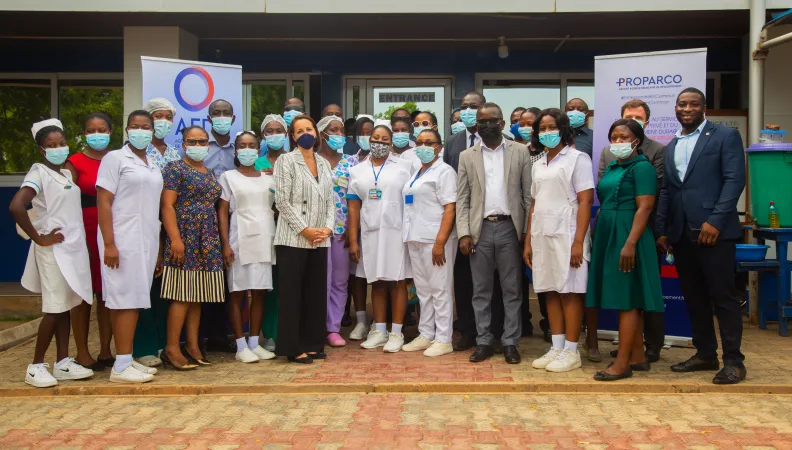Share the page
Proparco reiterates its commitment to the private healthcare sector
Published on

On 26 June 2023, Oxfam GB published a report into healthcare, which examines the role of development finance institutions (DFIs) and highlights shocking abuse of patients by certain establishments (in terms of quality or cost of healthcare). Based on these abuses, Oxfam has criticised DFIs for investing in the private sector via for-profit funds (private hospitals and clinics) or PPPs. We wish to commend Oxfam London for its exhaustive investigation work and aggregation of data (2010-2022), including data on older operations where we have sometimes not been involved for a number of years. Nevertheless, we deeply regret the confusion that is apparent in the report between financing of the construction of private healthcare facilities by DFIs and regulation and management of demand (i.e., healthcare financing), which is a matter for public policy. We do not agree with the findings of this report, which call for an end to the financing of private healthcare for the DFIs studied.
Everywhere – including in countries with universal health cover – there is an indispensable and often majority private healthcare offering, which often pre-dates health cover and rounds out public healthcare provision.
Supporting high-quality private healthcare is essential, and should not be confused with regulation of the healthcare sector and providing collective financial support for healthcare demand, which should be managed by the public authorities, based on a health insurance or group benefit approach.
Generally speaking, as described in scientific research literature and as we have observed in the countries in which we work, it is the absence of effective healthcare sector regulation that is at the origin of the abuses highlighted in the report, which unfortunately can occur in either the public or private hospital sector.
This is why AFD Group supports the healthcare sector in the countries in which it operates in both a comprehensive and complementary manner by investing in public and private initiatives:
- AFD's healthcare investments (in the public sector) account for the vast majority of investment (between $400 million and $600 million/year) and support governance of the sector (regulation, capacity building), healthcare financing policies and development of the public healthcare offering at all levels of the healthcare pyramid.
- Proparco's healthcare investments (in the private sector): around $100 million per year, are complementary and designed to develop a high-quality private sector. It should be noted that our healthcare operations also involve the production and distribution of drugs and pharmaceutical products with the aim of developing quality local production.
On the ground, AFD Group (Agence Française de Développement, along with its subsidiaries Proparco and Expertise France), ensures the complementarity of operations to support healthcare systems. It should be noted that private sector financing is not simply a deduction from public sector financing, as the resources and tools are different.
Proparco remains convinced of both the need for, and the value added by private investment in healthcare. The private sector has a knock-on effect on innovation and quality of healthcare in a given country. It also provides local jobs for local people and, more generally, helps to develop a country's entire healthcare ecosystem and make it more resilient through a variety of levers:
- local producers and distributors of pharmaceutical products enhance a country’s healthcare sovereignty and the quality of inputs (fight against counterfeit drugs),
- developing the healthcare ecosystem helps to supplement the availability of benefit baskets,
- the private sector is a source of technical/technological innovation (healthtech / medtech).
We share in the anger over the unacceptable abuses outlined in this report. Together with our DFI partners, we will conduct the necessary investigations at the establishments mentioned. We should also stress that we have a direct complaints procedure.
We remain convinced that a high quality private sector should form an integral part of a country's healthcare system and that it is essential to support its development, just as it is essential to invest heavily in public facilities to boost regulation capacity and deploy healthcare funding policies for the entire population.
